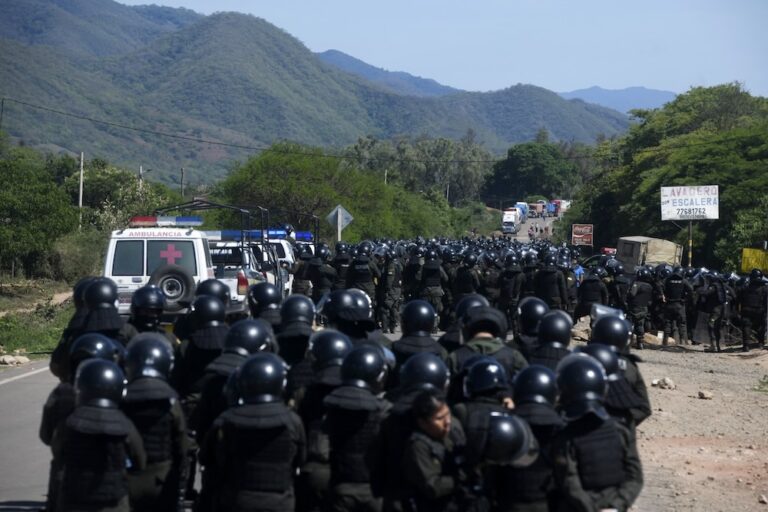(RSF/IFEX) – Reporters Without Borders is worried by an announcement on 22 July 2008 that five government ministers have been appointed to head the state-owned National Corporation for Bolivian Television (ENTVB) under an 11 June decree declaring it to be a “strategic enterprise.” ENTVB operates the Canal 7 television station. “This decision has been taken […]
(RSF/IFEX) – Reporters Without Borders is worried by an announcement on 22 July 2008 that five government ministers have been appointed to head the state-owned National Corporation for Bolivian Television (ENTVB) under an 11 June decree declaring it to be a “strategic enterprise.” ENTVB operates the Canal 7 television station.
“This decision has been taken against a backdrop of extreme political polarisation and confrontation between government media and opposition media,” Reporters Without Borders said. “It is vital that all the actors involved should take care not to put political interests before respect for news diversity.”
Presidential chief of staff Juan Ramón Quintana has been named as chairman of ENTVB’s board of governors. The other four members of the board are Planning Minister Graciela Toro, Education Minister Magdalena Cajías, Finance Minister Luis Arce and Public Works Minister Oscar Coca.
The National Press Association (ANP), which represents Bolivia’s newspaper owners, condemned the announcement as a violation of free expression and press freedom. The ANP voiced particular concern that the decree says the minister must “draw up strategies and plans for developing ENTVB’s activities in the framework of the policies dictated by the national government.”
ANP executive director Juan Javier Zeballos said the state media are not supposed to serve any political faction. Former ENTVB chief executive Juan Francisco Flores described the decree as direct government intervention in news coverage.
Reacting to the accusations, Canal 7’s current managing director, Irguen Pastén, said there had been no changes to the way the station operates since the appointment of the new board of governors and the governments of many other countries have introduced this kind of oversight of state TV stations.
He also said the new governors were just in charge of activities at the institutional level and posed no threat to the autonomy of the station’s journalists.


